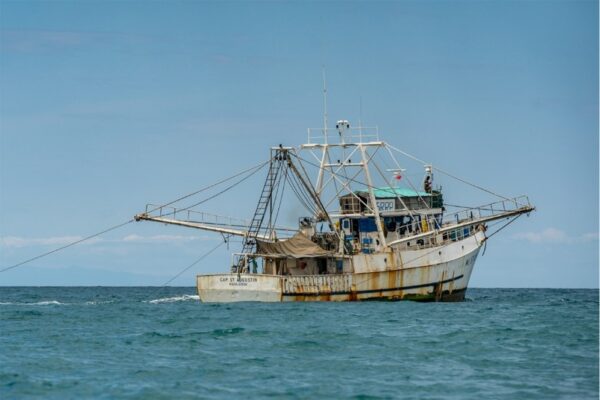Hopes for closure on a fair deal to stop governments bankrolling overfishing flopped yet again at the recent General Council meeting of the World Trade Organization (WTO) in Geneva.
Scheduled decision-making sessions aimed at closing the second half of a legally binding treaty to curb harmful fisheries subsidies were downgraded to a discussion at the July 22–23 gathering, after India raised objections to the draft text.
João Aguiar Machado, head of the E.U. Permanent Mission to Geneva, stated at the meeting “We will never succeed in concluding the negotiations if one seeks disciplines and obligations to apply to others and exemptions and carve-outs for oneself.”
The WTO has been negotiating a treaty to prevent subsidies that encourage or support overfishing and illegal, unregulated and unreported fishing for 25 years and counting. The negotiating group was given a 2020 deadline, in 2015, to land a deal in line with U.N. Sustainable Development Goal (SDG) 14.6, which aims to tackle overfishing by banning subsidies for illegal fishing and preventing new harmful subsidies while stressing fair treatment for developing nations. This is now years overdue.
Little progression
A partial deal, dubbed “Fish One” was finally struck at the WTO’s 12th ministerial conference in June 2022. But delegates couldn’t settle on how to balance the needs of rich and poor nations to land “Fish Two,” either then, at the 13th ministerial conference in March, or now.
“In the meantime, fish stocks continue to suffer, and the WTO is unable to deliver on Sustainable Development Goal 14.6,” Machado said.
A trawler, Cap-Saint Augustin, fishing off the shore of Nosy Faly, Madagascar Image by Mongabay.
More than a third of global fish stocks are overfished and another half are maximally sustainably fished, according to the U.N. Food and Agriculture Organization. Yet states have funnelled subsidies estimated at more than $400 billion into activities that lead to overfishing so far this century, despite commitments to biodiversity and climate goals.
Annually, governments spend about $35 billion on fishing subsidies, of which more than $22 billion is deemed harmful, according to a 2019 study in Marine Policy. Top spenders? China, the EU, the U.S., South Korea and Japan.
To read the full Mongabay article click here
